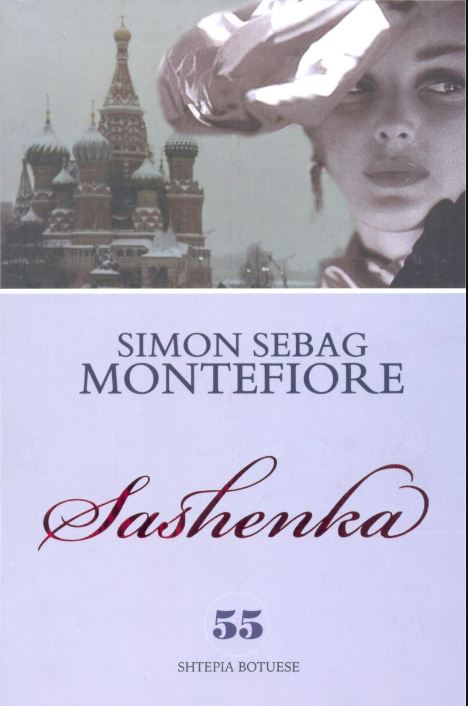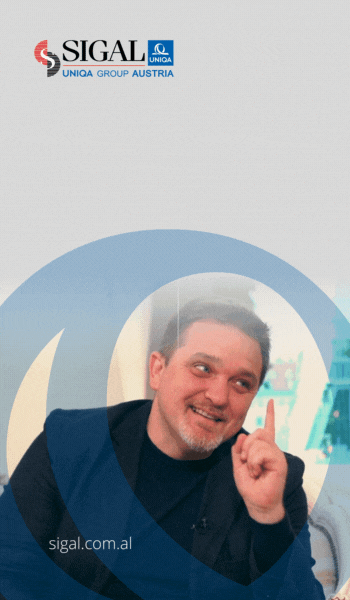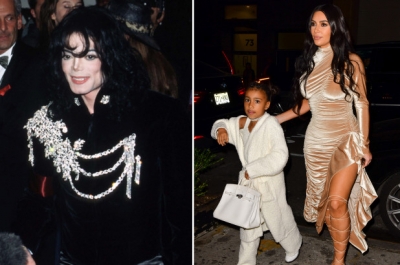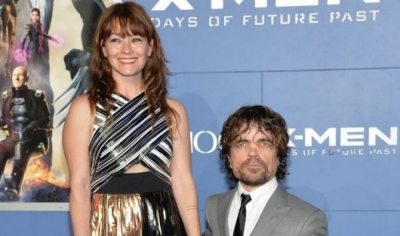"The time we live is not great and we must act as soon as possible. The existing political paradigms have proven to be inadequate and we
have to do them together, in agreement with all actors (UN, Council of Europe, and other relevant international organizations...) change, replace with some new paradigms that will contain appropriate answers to existing crises," has said the Croatian Ambassador to Albania, Zlatko Kramaric in an exclusive interview with Albanian Daily News.
The Ambassador noted that it could be said that the issue of Kosovo is the most important issue of these elections in Serbia. "But what should worry us is the crushing fact that they all have the absolutely same attitude: Kosovo is the heart of Serbia and should be ignored Franco-German plan! And how can we expect any positive progress in the relations between Belgrade and Pristina?!"
Touching upon the situation in Albania, Ambassador Kramaric thinks that it is very important that the Albanian political elites (both the position and the opposition) define their political positions, clearly show and prove that the democratic capacities of the Albanian society are at a satisfactory EU level, that all EU conditions are fully met. "All the more so since 2025 is an election year in Albania as well. Until then, all ambiguities must be resolved positively!"
When it comes to relations between Croatia and Albania, the Ambassador said we must be honest and say that there is a big gap between excellent political and relatively modest economic relations. "It is high time to establish relations between our economies like those in politics!
And that as soon as possible!" said Croatian Ambassador to Tirana, Zlatko Kramaric in the following interview:
Albanian Daily News:First of all thank you, Your Excellency for this conversation at the end of this year. Which is your opinion of what happened in 2023 and the perspectives for 2024 to find a solution to the overall crisis which has hit all the countries of the world? The dilemma remains: how will the world be next year?
Croatian Ambassador Zlatko Kramaric: The end of the year, the time of the Christmas holidays, most often fills people with optimism, faith in a better future, a happier and richer life for every citizen. But, this is all happening in the year 2023.
What happened in the world (the war in Ukraine with no end in sight, this latest terrible conflict in Gaza, where we are witnessing a humanitarian disaster of epic proportions, as well as the existence of a whole series of other crises in all parts of the world, where the appearance of uncontrolled regimes is experienced as something the most normal, dramatic changes in the climate, new migrations of people) is not in accordance with our beautiful wishes, our unfounded optimism.
Therefore, we can conclude that the time we live is not great and that we must act as soon as possible. The existing political paradigms have proven to be inadequate and we have to do them together, in agreement with all actors (UN, Council of Europe, and other relevant international organizations....) change, replace with some new paradigms that will contain appropriate answers to existing crises.
This year was full of tension between Kosovo and Serbia and despite the efforts of the EU and the US there are no results in the dialogue which seems like a scheme that does not work. Do you think that there will be any changes to the situation or the conflict will go on nonstop in an unpredictably similar situation like that between Palestine and Israel?
And in this example, we can see that there is no space for optimism. Let's be honest and face reality. And reality is cruel! Who in the international community condemned what happened in the north of Kosovo at the end of September? What do we even know about that event? Who organized that landing, that terrorist act, the intrusion of terrorists into the territory of another country? A certain Radojcic, the leader of those terrorists, has not yet been held accountable for that action. Moreover, he is still a free man in Serbia.
Furthermore, it still remains unclear whether Vucic, the president of Serbia, accepted the Franco-German plan or not!? If not, what are the sanctions due to this conscious political obstruction of previously assumed obligations?
December 17 in Serbia. Parliamentary elections will be held. All the participants in these elections, and those who are currently in power, as well as the opposition, both 'left' and 'right, refer to Kosovo. It could be said that the issue of Kosovo is the most important issue of these elections. But what should worry us is the crushing fact that they all have the absolutely same attitude: Kosovo is the heart of Serbia and should be ignored. Franco-German plan! And how can we expect any positive progress in the relations between Belgrade and Pristina?!
Please, which is your assessment of the situation in the Western Balkans against the background of many EU decisions this year and the expectations for the EU enlargement process to deliver? Will 2024 bring new possibilities for a more dynamic progress of the enlargement process?
There is no doubt that this process of EU enlargement to the countries of the Western Balkans is taking too long. In many details, it becomes a bit tedious for the vast majority of citizens of those countries. But let's be honest, meticulous European bureaucrats are not the only ones to blame for this situation, but the political elites of the Western Balkan countries are also to blame. Namely, many of them are in favour of EU-integration exclusively on a verbal, symbolic level, but when some European solutions need to be implemented in their own society, then we witness that this kind of enthusiasm is suddenly absent. Simply: I am not convinced that there is a sincere desire among all political actors in these countries to accept EU values!
They consciously give up on the implementation of the reform agenda in their own society. Namely, they know very well that the implementation of these reforms means the end of their way of governance. It is about such a type of management that we cannot consider a model of democracy.
I am not one of those who like to dramatize, but I am convinced that next year is very important for Albania. And for several reasons. Namely, elections for the European Parliament will be held next year. New commissions will be formed.
Changes in political relations within the EU itself are also possible. However, whoever wins these elections will have to answer some important questions. One of these important questions is the question of the enlargement (methodology, pace...) of the EU to the countries of the Weste Balkans. Political relations in 2024 and those from 2019 cannot be compared. Many things have changed in the meantime; Russia's aggression against a sovereign country took place, we are witnessing uncontrolled conflicts in Gaza, we have new waves of migration, and a new crisis zone is opening, the case of Moldova... and these new circumstances require some new, better answers than the previous ones. In this context, it is very important that the Albanian political elites (both the position and the opposition) define their political positions, clearly show and prove that the democratic capacities of the Albanian society are at a satisfactory EU level, that all EU conditions are fully met. All the more so since 2025 is an election year in Albania as well. Until then, all ambiguities must be resolved positively!
In your opinion, will there be a global adequate answer to the political and economic challenges which have put the world in a situation worse than that after the end of the Second World War?
It cannot be said that today's world politicians are not aware of all the dangers that seriously call into question the future of our planet, our civilization... It cannot be said that these threats (dramatic climate changes, uncontrolled migration...) do not talk. However, particular interests still prevail, so some countries ignore many Protocols (for example, the Kyoto Protocol), because they consider that the contents of those protocols are not in their interest. And this is where all our problems begin, because without community, solidarity, readiness for compromise solutions, suspending one's own interests, it is difficult to overcome all these threats.
Unfortunately, many are still not aware of their seriousness. And without adequate and timely answers, the situation will become more and more serious and harder to solve. I don't know if you are aware that we have already exceeded seven and eight ecological thresholds that protect life on Earth. Therefore, we must be aware that we will not have better weather conditions than these today in our lives: every day when we leave the house in unhealthy or dangerous weather, we experience a better and more stable climate than the one we will ever see in the future.
However, it is equally important to be aware that there is a cause-and-effect relationship between climate change, environmental destruction, and racial, regional, social, ecological, and economic injustices that primarily affect indigenous communities, deindustrialized communities, depopulated rural communities, the poor, low-income workers, the elderly, people with disabilities and young people.
Relations between Albania and Croatia experienced important events this year and both leadership have pledged to strengthen the strategic partnership and the overall relations between the two countries. Which are the expectations for them to deliver in 2024 so that the economic relations expand, responding to the political level of Croatian-Albanian relationship?
When it comes to relations between Croatia and Albania, we must be honest and say that there is a big gap between excellent political and relatively modest economic relations. It is a high time to establish relations between our economies like those in politics! And that as soon as possible. The following year, 2024, could represent that new beginning. There are no objective obstacles, because politics and diplomacy have done their part, now it is the businessmen's turn. In the process of Albania's accession to the EU, great perspectives are opening up for the Croatian economy. Albania is an interesting area, an interesting market.
However, the tenders that will be announced by the Albanian side must be correct, in accordance with the highest EU standards, and the Croatian economy must show that it is competitive, that it is ready to deal with European competition.
Albania will have to build transport and other infrastructure in the coming period. And in that segment, I see a great opportunity for Croatia to definitely position itself in this area with its knowledge and experience. Furthermore, cooperation in the field of tourism, energy, the IT sector... are just some of the possibilities. And we should not even mention military cooperation, we are directed to it by the fact that we are both members of the NATO alliance...
-To conclude, Croatian membership in the European Union has been a success story during the last decade of membership in the European Union and it is visible everywhere in Croatian society. Like this year, there will be many simultaneous challenges in 2024. Your Excellency, how will Croatia face them and how will it share its experience with the Western Balkans aspirants to join the Union?
It is probably not necessary to further explain the reasons why the Western Balkans are so important to Croatia. It is in our interest that the countries of the Western Balkans become full members of the EU as soon as possible. Namely, this fact would solve many current open (and painful) questions. Finally, some of these countries are our first neighbors (Bosnia and Herzegovina, Serbia, Montenegro), with some we share a relatively long common past (Kosovo, North Macedonia), and there are also long cultural ties with Albania; so it is understandable that we care that those countries, in for the foreseeable future, become part of a large European family, which shares and respects the same values. Croatia wants to be both a sincere friend and a reliable partner to the countries of the Western Balkans in their EU integration processes. Of course, we expect the countries of the Western Balkans to behave in a similar way.
And they must constantly prove their EU credibility by being committed to implementing the reform agenda, accepting EU standards...




















